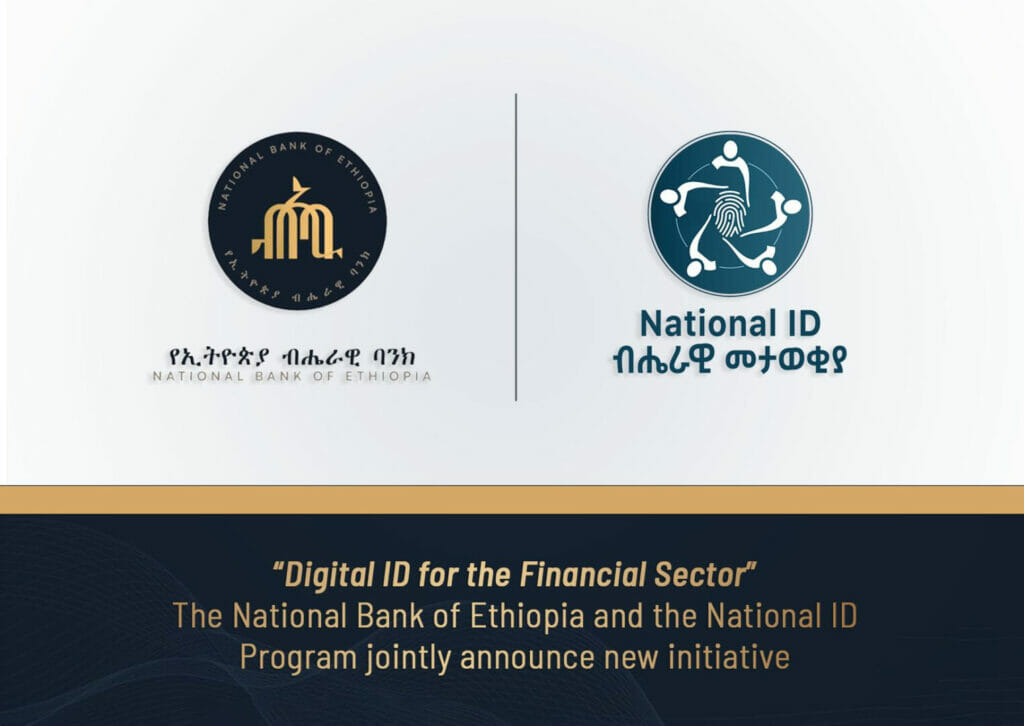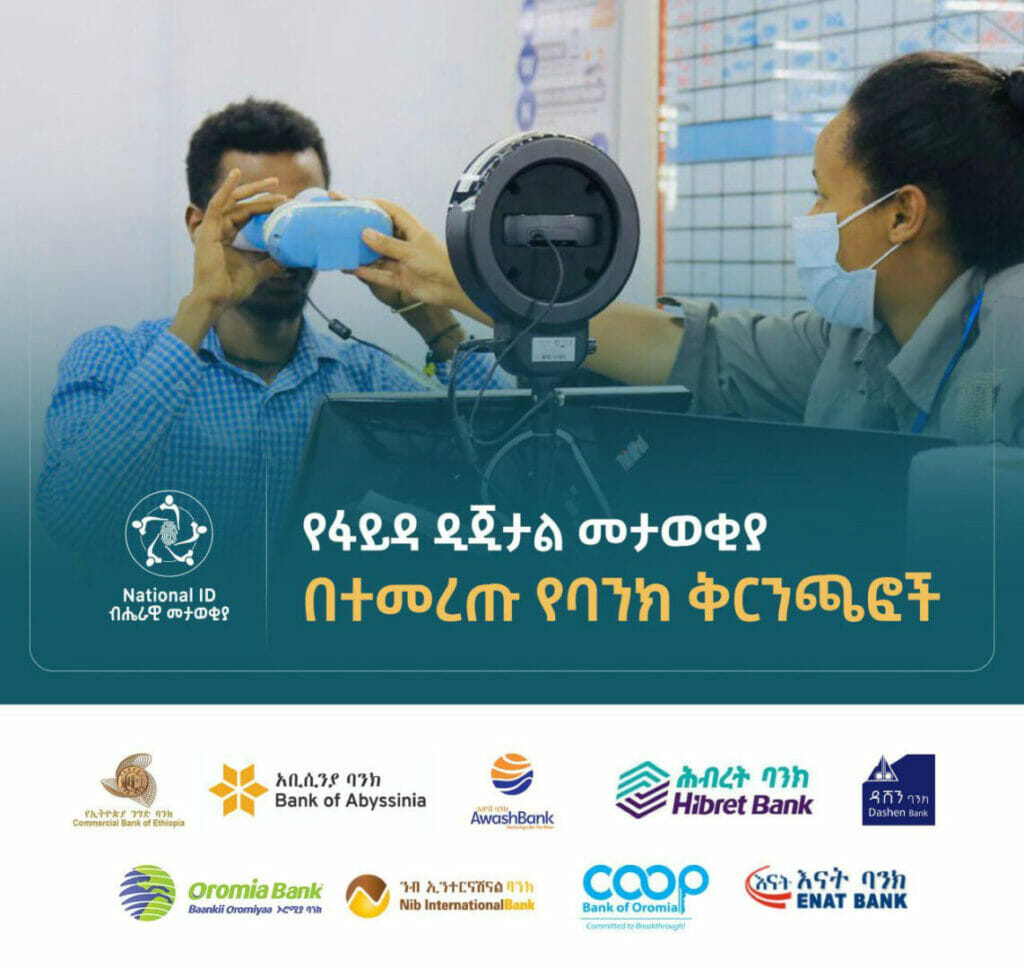Ethiopia, a nation currently struggling with deep food shortages and famine, has announced that they will make it obligatory to have a national digital ID in order to use banking services in the country.
Over a week ago the United Nations’ World Food Programme said that they were appalled at the levels of theft going in Ethiopia, in regards to how many people were stealing the provided rations, and have demanded that biometric checkpoints be instigated to alleviate the problem before they start making any real resupplies there.
SEE: United Nations’ World Food Programme Demands Biometric Checks Be Implemented To Prevent Aid Theft
The National Bank of Ethiopia announced earlier this week that the national digital ID known as “Fayda” will be mandatory for all citizens in order to use national banking services.

The National ID Program explained the move in a press release on Monday, which states:
The first initiative is set to onboard all financial sector customers onto the digital ID platform in the upcoming fiscal year, offering a more robust and secure financial ecosystem for all parties. The purpose of this initiative will not only benefit the existing customer base, but will increase financial inclusion by removing barriers to entry. This process will follow legal and technical safeguards guided by cybersecurity and personal data protection principles enshrined within the existing legal framework.
As such, a Digital ID will serve as a primary Bank ID and will have legal acceptance in all financial institutions.
In parallel, the second initiative involves the use of Digital ID in the financial sector’s eKYC, aiming not only to elevate service delivery standards but also facilitate trusted and improved digital services like Remote Onboarding while removing unnecessary barriers.
By offering a reliable and real-time identity verification system, this new digital ID platform called “Fayda” can serve as a basis for new digital products while mitigating associated financial risks.
The implementation of this National ID as a Bank ID in Ethiopia, will not only help the finance sector, it will also accelerate the country’s transition towards more transparency and inclusion serving as a key pillar for national development plans and journey towards a digital economy.
Just days before this announcement the government’s National ID Program began accepting registrations at 8 different banks.

The integration of Fayda ID into the existing financial service provided by banks will have a significant impact on the reduction of fraudulent activities, which is expected to enable banks to save millions in costs also related to manual operations and customer due diligence.
It will also reduce the time taken to clearly identify individuals, register their data and provide a more efficient, secure, and reliable service transforming the banking ecosystem.
The department said in a statement
Biometric Update also noted, ‘Ethiopia is implementing a World Bank-supported MOSIP-based digital ID project which intends to have all eligible citizens enrolled by 2025. The country also recently contracted IrisGuard to support benefits payments to citizens with iris biometrics.
In a op-ed piece published in April, Nohaila Ibn El Farouk for the Addis Standard noted that “change is coming to Ethiopian banking,” writing:
Digital banking solutions can also serve as a catalyst for turning the tide of what has long been the elephant in the room when it comes to African banking: the large percentage of the population is unbanked.
Like in many other countries in Africa, only a minority of Ethiopian adults have registered for any sort of bank account, but digital banking has proven that it can quickly redress the imbalance.
Tech solutions are likely to attract not only the expected crowd of young, tech-savvy customers, but also those living in remote or rural areas, where an internet connection is easier to get hold of than a brick-and-mortar bank. With 75% of its population unbanked, the potential for growth in Ethiopian banking is immense.
Change is coming to Ethiopian banking, bringing with it both risk and opportunity. It is up to the country’s authorities, financial sector, and general population to seize the reins of this transformation and use it to shape the future of Ethiopia. How long until we hear the lion of Ethiopian finance roar again?
AUTHOR COMMENTARY
If you have been following my work for any real length of time, you know I reported on how nations all over the world are rapidly implementing these new digital IDs, and that they are all tied-in one with another in order to bank, buy food, get medical care and prescriptions, and more.
Sweden To Rollout Digital ID With BankID, Scanning QR Codes For Clearance
27 Corporations Publish ‘Policy Blueprint’ On How Governments Should Adopt Digital IDs
Ethiopia, like many of these other smaller nations, can and are being used to trial this agenda, to see what works and what flops.
And again, while we are still a little ways off, this is a necessary framework for the coming mark of the beast.
[16] And he causeth all, both small and great, rich and poor, free and bond, to receive a mark in their right hand, or in their foreheads: [17] And that no man might buy or sell, save he that had the mark, or the name of the beast, or the number of his name. [18] Here is wisdom. Let him that hath understanding count the number of the beast: for it is the number of a man; and his number is Six hundred threescore and six. Revelation 13:16-18
[7] Who goeth a warfare any time at his own charges? who planteth a vineyard, and eateth not of the fruit thereof? or who feedeth a flock, and eateth not of the milk of the flock? [8] Say I these things as a man? or saith not the law the same also? [9] For it is written in the law of Moses, Thou shalt not muzzle the mouth of the ox that treadeth out the corn. Doth God take care for oxen? [10] Or saith he it altogether for our sakes? For our sakes, no doubt, this is written: that he that ploweth should plow in hope; and that he that thresheth in hope should be partaker of his hope. (1 Corinthians 9:7-10).
The WinePress needs your support! If God has laid it on your heart to want to contribute, please prayerfully consider donating to this ministry. If you cannot gift a monetary donation, then please donate your fervent prayers to keep this ministry going! Thank you and may God bless you.








Everything happens very quick now.
Im not sure anymore how long before the catching away, when I read articles like this and like this one:
https://www.planet-today.com/2023/07/wef-says-cbdcs-must-be-implanted-under.html?m=1